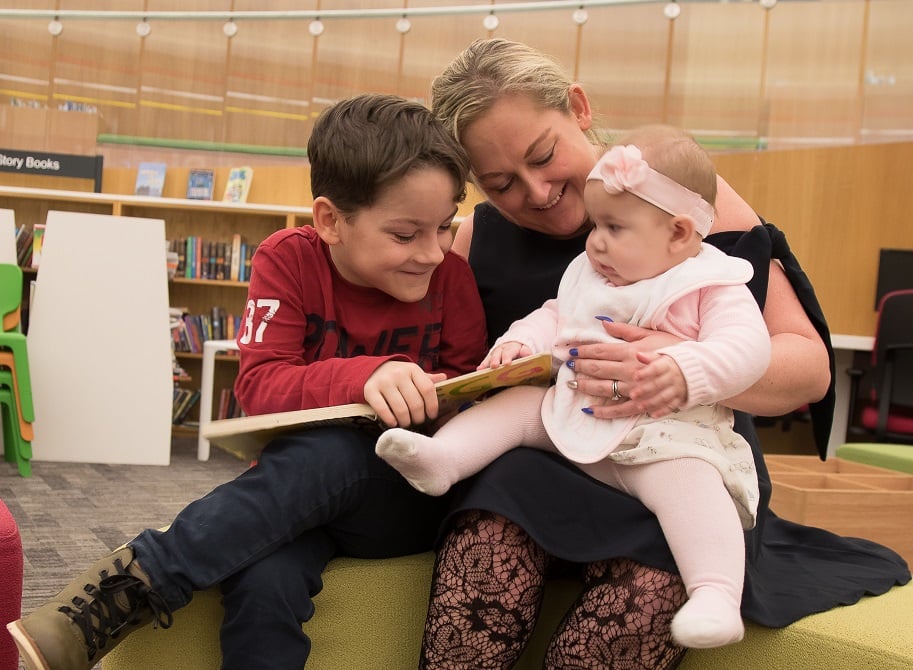
Photo: Jackie Mellor
Doctors move closer to unified plan for arts on prescription
27 healthcare providers in the North West have committed to developing a cultural prescription plan for new and expectant mothers to give children the “best start” in life.
Medical professionals in the North West of England have moved closer to making reading and singing on prescription a formal part of their healthcare offer.
27 National Health Service (NHS) organisations across Cheshire and Merseyside have committed to developing a social prescription plan, which one NHS official promises will be implemented across the region within one year.
This will initially focus on new and expectant mothers, using arts and health partnerships to give children the “best start” in life, and is hoped to form the basis for general social prescribing for all stages of life across the whole country.
“The current NHS focus is affordability,” said consultant Jo Ward, whose work on the benefits of arts and health partnerships was the catalyst for the regional commitment. “It currently gives you things to make you well instead of targeting behaviour which makes you unwell.
“We want to get creative health engagement right so that we can live good lives from day one. We want people to be able to manage their own care – a pill isn’t always the right answer.”
Future blueprint
Ward was commissioned to undertake a nine-month ‘scoping exercise’ examining how partnerships between health and culture could keep people well and improve recovery by NHS vanguard Cheshire and Merseyside Women’s and Children’s Services. The vanguard, made up of 27 healthcare providers, clinical commissioning groups and health networks, was one of 50 tasked by the NHS to investigate new care models. It is hoped their work will act as future blueprints for the NHS and care services across England.
Drawing on a manifesto for social prescribing by one Cheshire-based healthcare provider, and a recent study which found singing workshops may help mothers recover more quickly from post-natal depression, Ward’s research found cultural partnerships were effective ways of engaging with ‘hard to reach’ groups.
She said each area of Cheshire and Merseyside must now develop its own approach to social prescribing, depending on the opportunity and need in the area. She is calling on artists and healthcare professionals to “step up” as “they’re probably already sitting on solutions”.
Dave Sweeney, the NHS official tasked with making sure the commitment to a social prescription plan is implemented across Merseyside and Cheshire, told AP he was “very confident” the proposals would be taken up. The public are “aching for good news and for something different,” he said.
“The problem in healthcare is that no-one ever asks the real question: ‘How are you really doing?’”, he told AP.
“Social prescribing helps tackle those wellbeing questions and is already used by good GPs. What is missing is a framework to ensure this prescription is consistent and sustained.”
Sweeney is in conversation with Health Education England to adapt the curriculum for health and social care students so they are taught to value and make use of cultural and spiritual offers in the local area.
He continued: “Within 12 months all nine places across Cheshire and Merseyside will have adopted social prescribing as part of their primary care. We will have a consistent approach with demonstrable outputs.”
Discussing what this could look like, Ward told AP: “It could be that an NHS speech and language service needs to promote children’s language development through encouraging mother and baby conversations, with a focus on supporting parents to develop language and communication skills. At the same time, a library service may be keen to develop language and literacy skills through a ‘reading for pleasure’ strategy.
“Where the two services have aims which overlap there is a rich opportunity to harness the power of books and storytelling because verbal language development can be facilitated and enriched through the medium of books – by sharing pictures with a child or asking questions about the story they have just read.
“Libraries know exactly which stories and what books include elements that can enhance the whole process and increase vocabulary and comprehension.”
Wider social impact
As well as highlighting current good practice, Ward sees the commitment to cultural prescription as the beginning of a more in-depth conversation about how such partnerships could tackle systemic social problems.
“The number of toddlers being taken to dentists for tooth decay, or reaching school age without potty training, is a sad reflection of inequality. We should be outraged that so many children are being let down,” she added.
“So how could partnerships between cultural organisations and clinical networks look to address this? How could they address and respond to the gaps left by the closure of most Sure Start centres in recent years and empower communities?”
A symposium will be held in early July to share best practice of arts and health projects and to create links between health officials and the culture sector.
Join the Discussion
You must be logged in to post a comment.